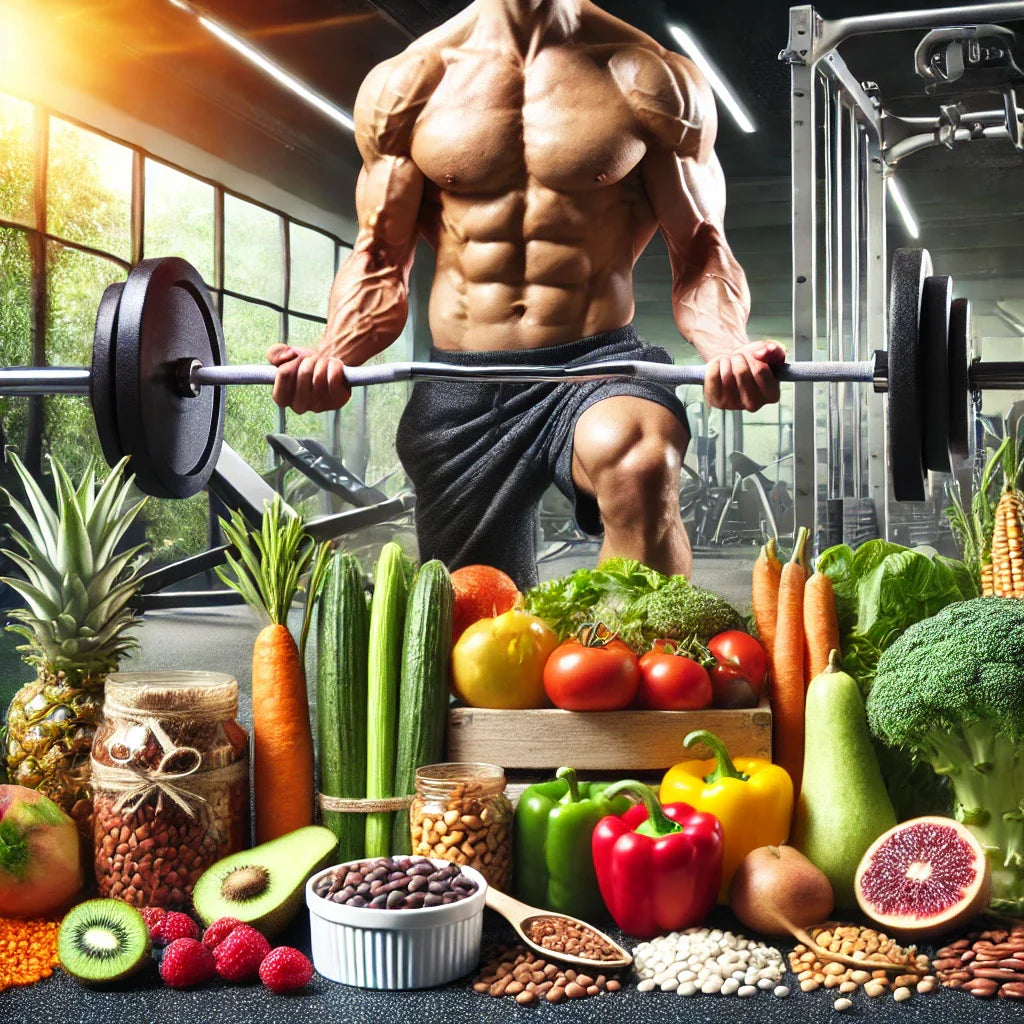Is Muscle Growth Possible on a Plant-Based Diet? The Science Behind It

Building muscle on a plant-based diet is not only possible but also increasingly popular among fitness enthusiasts and athletes. With the right approach to nutrition, training, and supplementation, a plant-based lifestyle can provide all the essential components needed for muscle growth. Here’s what the science says about achieving your fitness goals while sticking to a plant-based diet.
The Basics of Muscle Building
Muscle growth, or hypertrophy, relies on three main factors:
-
Progressive Resistance Training: Consistently challenging your muscles with heavier weights or more reps.
-
Adequate Protein Intake: Ensuring your body gets the amino acids necessary for muscle repair and growth.
-
Caloric Surplus: Consuming more calories than you burn to fuel recovery and growth.
Plant-based diets can effectively support all these factors when properly planned.
Protein on a Plant-Based Diet: Getting Enough
Protein is a critical component of muscle building, and plant-based sources can provide all the necessary amino acids if consumed strategically.
-
Complete Proteins: Some plant foods, such as quinoa, soy, and buckwheat, contain all nine essential amino acids.
-
Combining Protein Sources: Pairing foods like rice and beans or hummus and pita ensures a complete amino acid profile.
-
Protein-Rich Plant Foods: Include lentils, chickpeas, tofu, tempeh, edamame, seitan, nuts, seeds, and protein powders derived from peas, rice, or hemp.
Aim for 1.6 to 2.2 grams of protein per kilogram of body weight daily to optimize muscle growth.
The Role of Macronutrients
While protein often takes the spotlight, carbohydrates and fats also play crucial roles:
-
Carbohydrates: Fuel your workouts and replenish glycogen stores. Opt for whole grains, fruits, and starchy vegetables.
-
Fats: Support hormone production and overall health. Focus on healthy fats from avocados, nuts, seeds, and oils like olive or flaxseed.
Overcoming Potential Challenges
-
Caloric Density: Plant-based diets can be lower in calories due to their high fiber content. Incorporate calorie-dense foods like nut butters, seeds, and dried fruits to meet energy needs.
-
Micronutrient Considerations: Ensure adequate intake of B12, iron, zinc, and omega-3s. Consider fortified foods or supplements when necessary.
Supplementation for Plant-Based Muscle Building
Supplements can complement your plant-based diet and support muscle growth:
-
Protein Powders: Plant-based protein powders provide a convenient way to meet protein goals.
-
Creatine: A proven supplement for increasing strength and muscle mass. It’s vegan-friendly and highly effective.
-
B12: Essential for energy production and red blood cell formation.
-
Omega-3s: From algae-based supplements to support heart and joint health.
Success Stories: Plant-Based Athletes
Many elite athletes, such as bodybuilder Nimai Delgado and strongman Patrik Baboumian, thrive on plant-based diets. Their achievements showcase the potential of plant-based nutrition in even the most demanding sports.
Final Thoughts
Building muscle on a plant-based diet requires careful planning but is entirely achievable. By prioritizing protein, balancing macronutrients, and incorporating strategic supplementation, you can achieve your fitness goals while aligning with your ethical or environmental values.
Ready to power your plant-based gains? Explore our range of supplements at Creature Supps to support your journey to strength and health.


Leave a comment